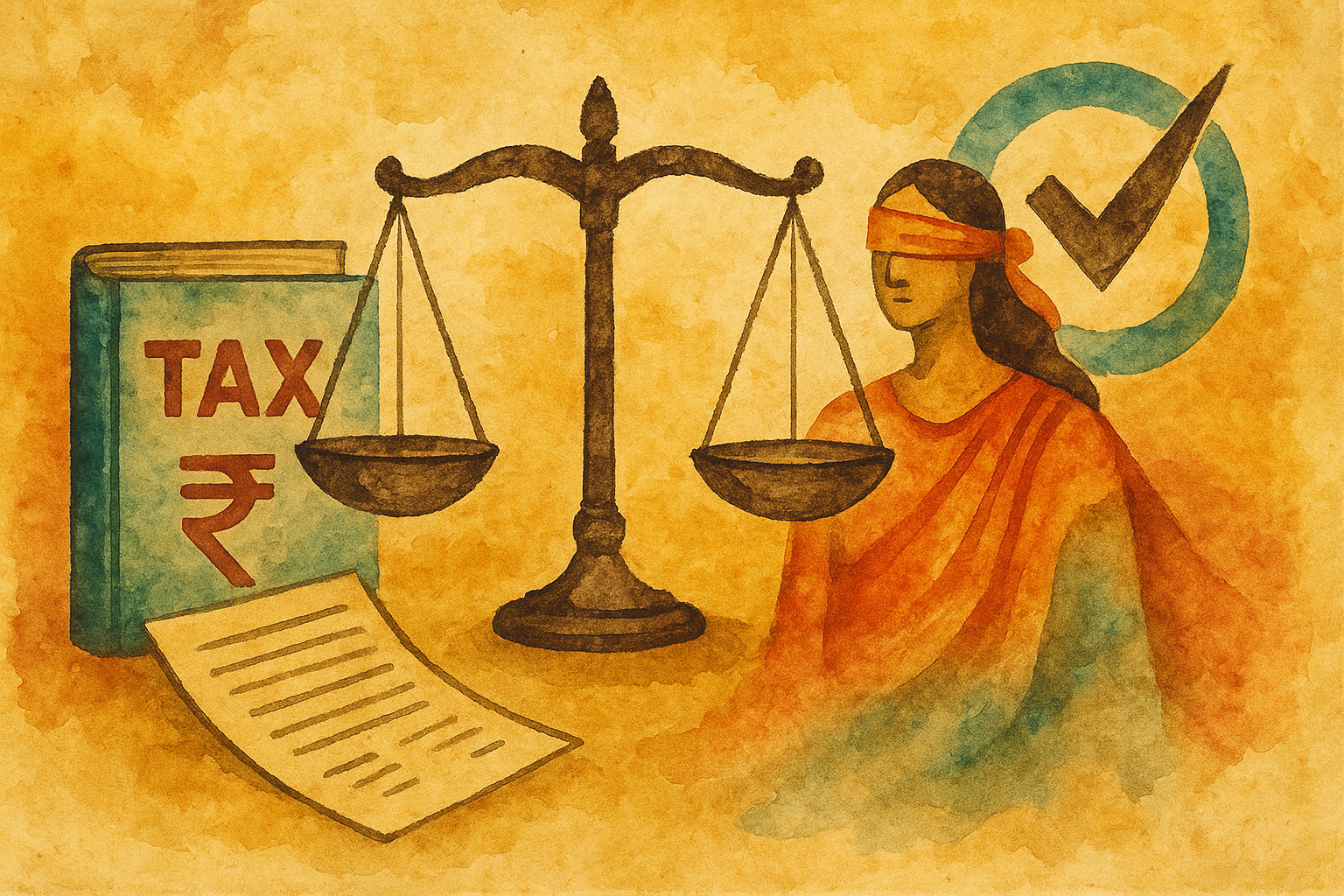Simplified Explanation of the Judgment
On 6 November 2020, the Patna High Court decided Tax Case No. 28 of 1986, clarifying whether an amendment to Section 64(1)(iii) of the Income Tax Act, 1961—introduced by the Taxation Laws (Amendment) Act, 1975—applied retrospectively or prospectively. The Court ruled that the amendment was prospective in nature, protecting taxpayers from retrospective tax liability.
Background of the Case
The case concerned the assessment of income for the Assessment Year 1976–77. The petitioner, the mother of a minor admitted to the benefits of a partnership firm (M/s Om Prakash & Co.), was assessed by the Income Tax Officer (ITO).
- The firm’s accounting year ended on 10 August 1975.
- The minor son received ₹32,031 as his share of income from the firm.
- Originally, this minor’s income was not included in the petitioner’s income.
- Later, the ITO reopened the assessment under Section 147 and included the minor’s income in her assessment by applying the amended Section 64(1)(iii).
The amendment, introduced by the Taxation Laws (Amendment) Act, 1975, mandated that the income of a minor child admitted to partnership benefits be clubbed with the parent’s income. This amendment came into effect on 1 October 1975.
The petitioner argued that since the income accrued on 10 August 1975, prior to the amendment’s effective date, it could not be included in her assessment for AY 1976–77.
Findings of Lower Authorities
- ITO’s View: The ITO held that since the amendment was in force on 1 April 1976 (the first day of the assessment year 1976–77), it applied to the entire previous year, including income earned before 1 October 1975.
- AAC & Tribunal: Both the Appellate Assistant Commissioner (AAC) and the Income Tax Appellate Tribunal upheld the ITO’s order, relying on Supreme Court rulings that tax law applicable on the first day of the assessment year governs the entire year.
Substantial Questions Referred
The Patna High Court was asked:
- Whether the Tribunal was correct in law in upholding inclusion of the minor’s income in the parent’s assessment for AY 1976–77.
- Whether the amendment effective from 1 October 1975 applied to income accrued on 10 August 1975.
High Court’s Observations
The Division Bench, led by Chief Justice Sanjay Karol and Justice S. Kumar, reviewed key precedents:
- Keshav Mills Co. Ltd. v. CIT (1965) – High Courts in reference jurisdiction cannot expand questions beyond what is referred.
- Rameshwar Prasad Bagla v. CIT (1973) – High Court’s role is advisory, not appellate.
- C.P. Sarathy Mudaliar v. CIT (1966) – High Courts cannot set aside Tribunal orders in reference jurisdiction.
- Kesoram Industries v. Wealth Tax Commissioner (1966) and Karimtharuvi Tea Estate Ltd. v. State of Kerala (1966) – Constitution Bench judgments clarifying prospective operation of tax amendments.
- Premier Breweries Ltd. v. CIT (2015) – Reiterated the advisory nature of High Court’s jurisdiction in income tax references.
Relying on a Full Bench decision of the Patna High Court in Badri Prasad v. CIT (1990) 185 ITR 307, later clarified by a larger bench ruling dated 1 August 2019, the Court held:
- The amendment to Section 64(1)(iii) introduced a new tax liability effective from 1 April 1976.
- It could not apply retrospectively to income accrued before 1 October 1975.
- Thus, the inclusion of the minor’s income earned on 10 August 1975 was incorrect.
Court’s Decision
The Court answered the reference in the negative, holding that the Tribunal erred in upholding the inclusion of minor’s income. The amendment was prospective, not retrospective.
Significance or Implication of the Judgment
- For taxpayers: This ruling ensures protection against retrospective taxation. Tax amendments cannot be applied to income accrued before their effective date.
- For tax practitioners: The judgment reinforces that tax liability is determined by the law effective on the relevant date of accrual, not retrospectively by later amendments.
- For government authorities: The case serves as a reminder that fairness and certainty are essential in taxation; retrospective application of laws creates unnecessary hardship.
Legal Issue(s) Decided and the Court’s Decision with reasoning
- Whether the amendment to Section 64(1)(iii), effective from 1 October 1975, applied to income accrued before that date.
- Decision: No. The amendment applied prospectively from 1 April 1976 and could not cover income accrued on 10 August 1975.
- Whether the Tribunal was correct in including minor’s share of income in the parent’s assessment for AY 1976–77.
- Decision: No. The Tribunal erred as the amendment could not operate retrospectively.
Judgments Referred by Parties
- Badri Prasad & Ors. v. CIT (1990) 185 ITR 307 (Patna HC)
Judgments Relied Upon or Cited by Court
- Keshav Mills Co. Ltd. v. CIT (1965) 2 SCR 908
- Rameshwar Prasad Bagla v. CIT (1973) 3 SCC 575
- C.P. Sarathy Mudaliar v. CIT (1966) 62 ITR 576 (SC)
- Kesoram Industries v. Wealth Tax Commissioner AIR 1966 SC 1370
- Karimtharuvi Tea Estate Ltd. v. State of Kerala AIR 1966 SC 1385
- Premier Breweries Ltd. v. CIT (2015) 11 SCC 695
Case Title
Smt. Narmada Devi v. Commissioner of Income Tax, Bihar, Patna
Case Number
Tax Case No. 28 of 1986
Citation(s)
2021(1) PLJR 618
Coram and Names of Judges
Hon’ble The Chief Justice Sanjay Karol and Hon’ble Mr. Justice S. Kumar
Names of Advocates and who they appeared for
- For the petitioner: Mr. D.V. Pathy
- For the respondent: Mr. Rishi Raj Sinha, Ms. Shilpi Keshri
Link to Judgment
https://patnahighcourt.gov.in/viewjudgment/NCMyOCMxOTg2IzIjTg==-i–am1–V–ak1–FvyrJfA=
If you found this explanation helpful and wish to stay informed about how legal developments may affect your rights in Bihar, you may consider following Samvida Law Associates for more updates.









